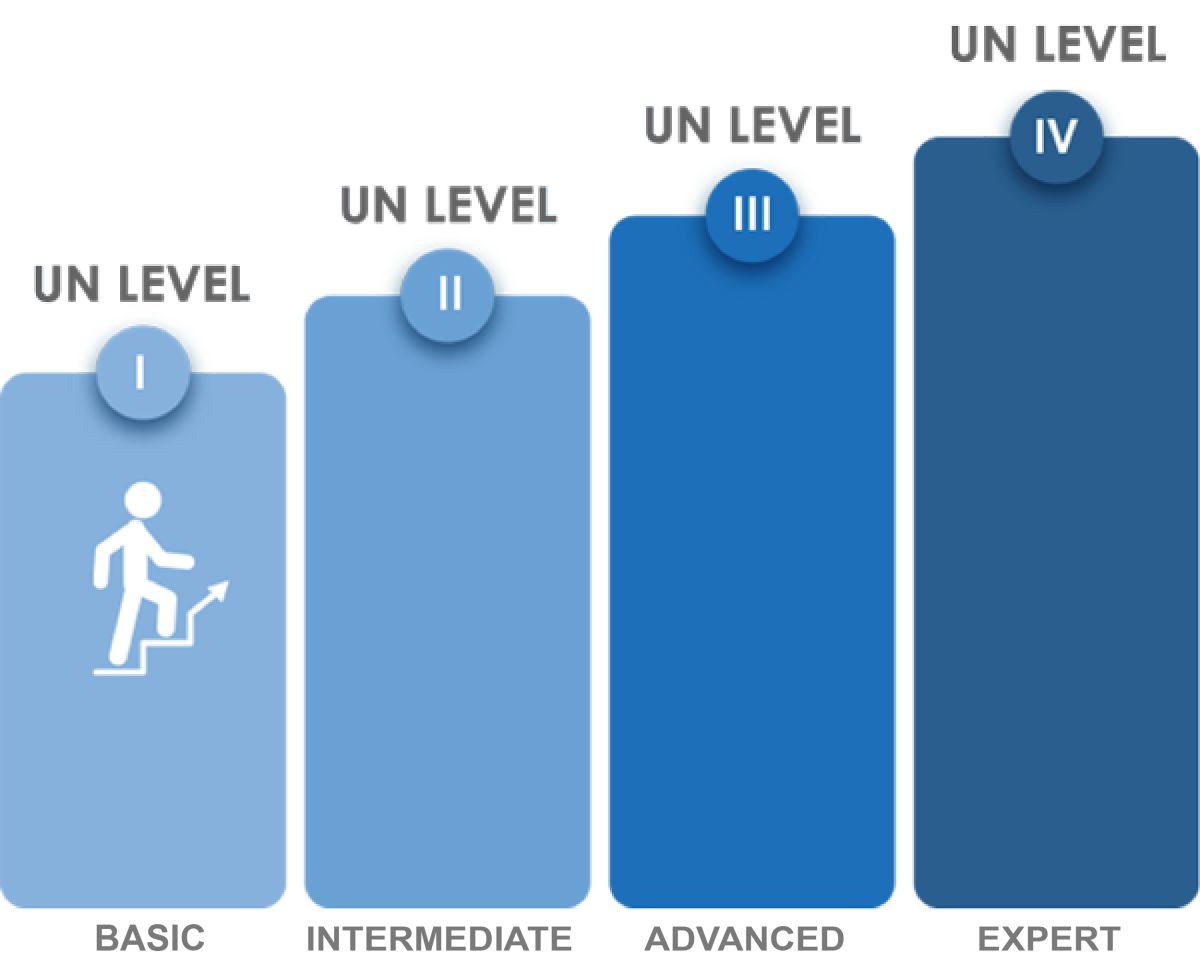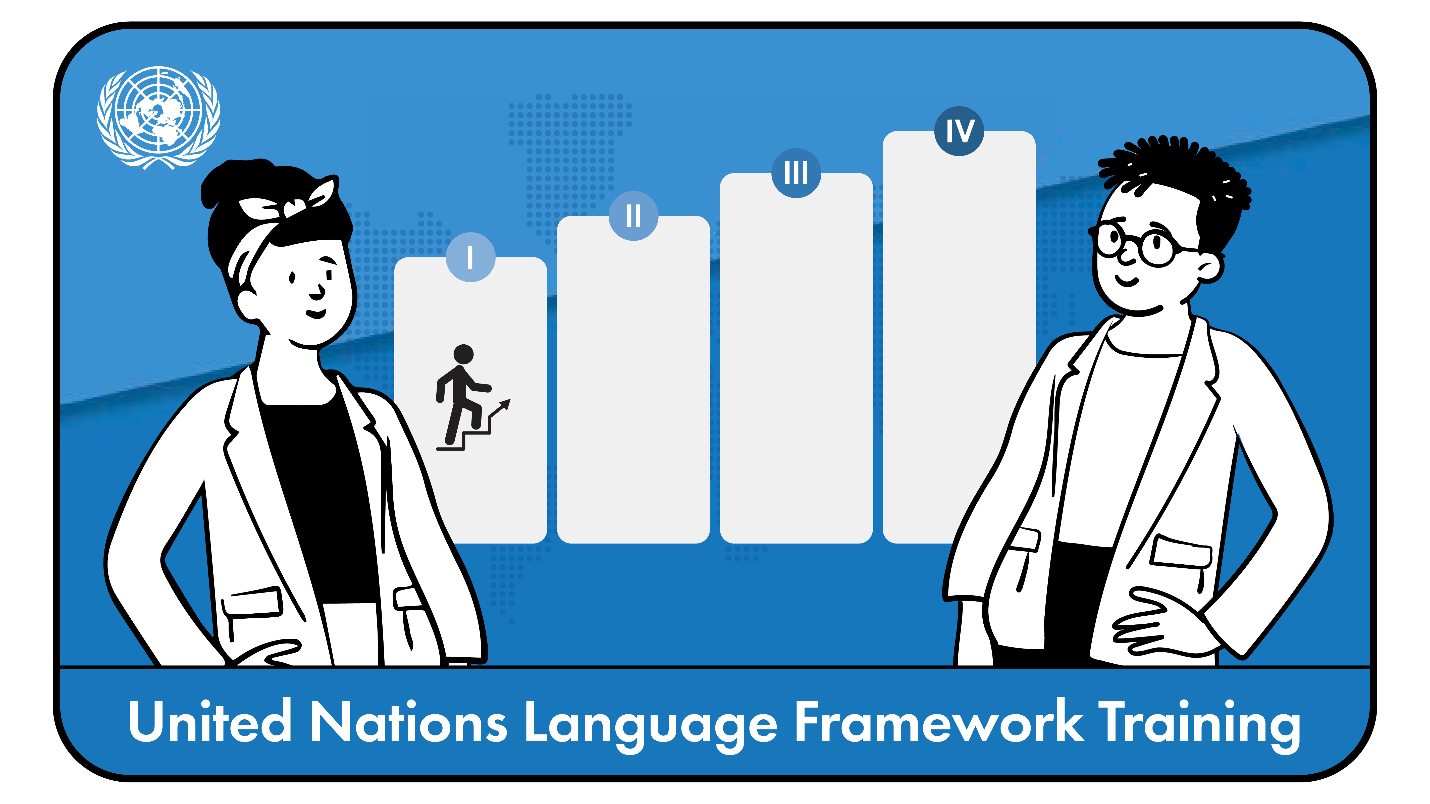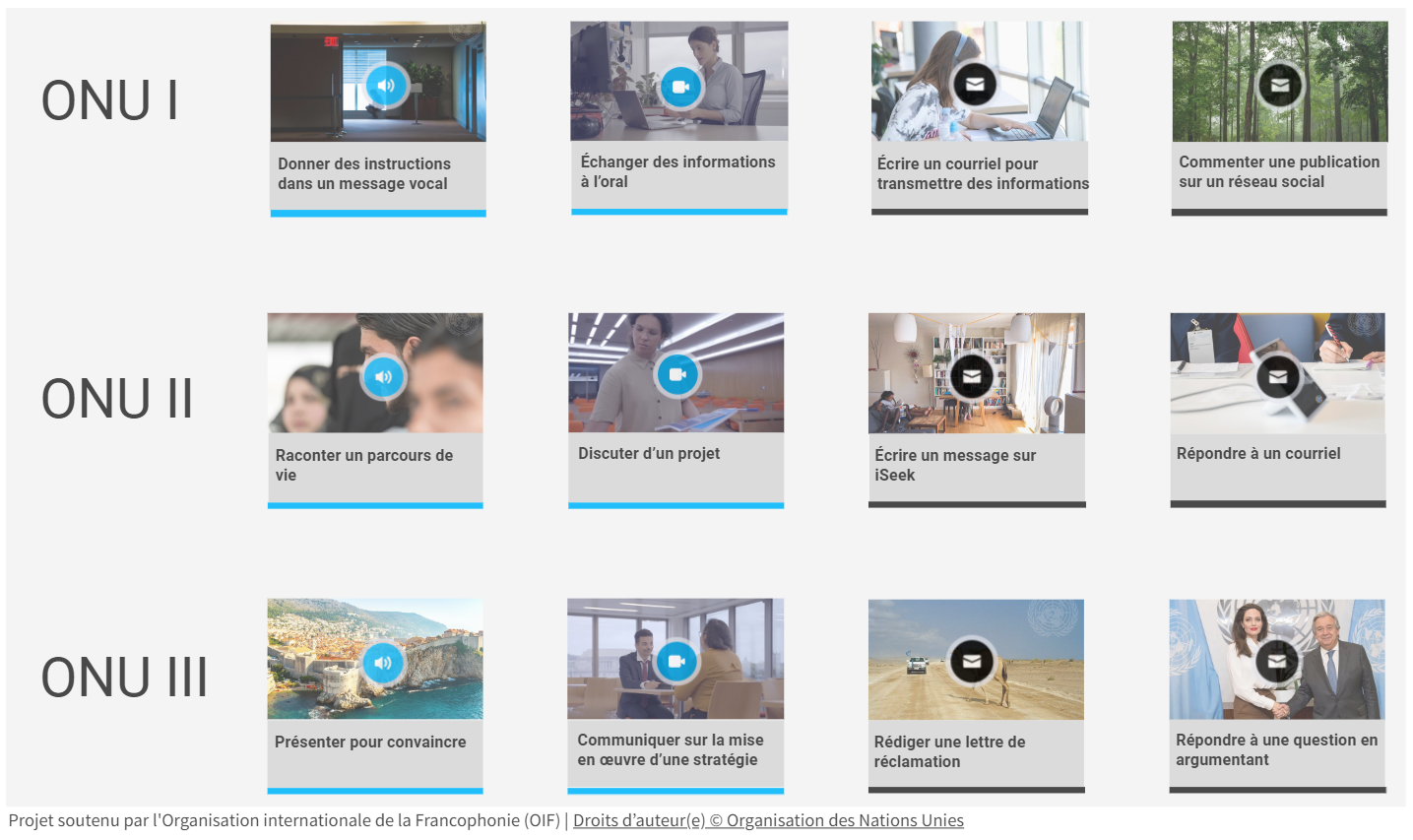
"At every level of language competence, UN staff members are expected to function as social agents in a variety of multilingual and multicultural contexts and, as such, use existing plurilingual and pluricultural competences to further develop their linguistic and cultural repertoire(s), and to facilitate and promote successful communication and cooperation throughout the Organization."
United Nations Language Framework
The United Nations Language Framework (UNLF)
The United Nations Language Framework is the reference for assessing and learning languages. It is unique to our diverse, international Organization, as it leverages multilingualism in all dimensions, including:
- communication among member states
- communication with the public the UN serves
- communication among UN staff members
The UN Language Framework ensures:
- consistency across language standards (learning)
- validity in language assessments (career development and language assessment)
- equal treatment of languages (respect for diversity)
The four UN Levels of Language Competence acknowledge the different stages in knowing and using any of the six official languages in three different domains:
- personal
- public
- UN-related, professional contexts

The four UN Levels are defined by one overall and four specific descriptors:
- receptive activities: listening, reading
- production and interaction: speaking, writing
The development of language skills is at the core of career development for a multitalented, flexible workforce. The language programmes are gradually aligning their offering with the UN Language Framework. To this end, it includes a Core Curriculum and, for each UN official language, a Language-specific Curriculum (Arabic, Chinese, English, French, Russian, Spanish).
The United Nations Language Framework Training provides a thorough understanding of the UNLF key components along with a library of practical applications and class sample materials. This course is open to all UN staff. However, it is specially designed for those involved in language training and language skills assessment.

What UN level are you?
A variety of assessment tools have been developed in recent months — and more are on the way.
Please visit the Supporting Multilingualism page: Language Assessment / Pilot UN Level I and UN Level II Examinations
Please visit the Supporting Multilingualism page: Language Assessment / Language Proficiency Examination
Get to know the UN Language Framework:
- UN Language Framework - UN Levels and Core Curriculum
- Arabic Language Curriculum
- Chinese Language Curriculum
- English Language Curriculum
- French Language Curriculum
- Russian Language Curriculum
- Spanish Language Curriculum

